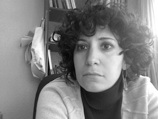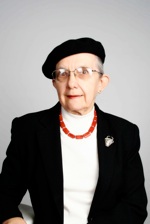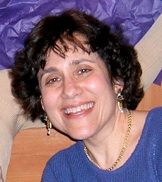The SIGMAA on Research in Undergraduate Mathematics Education
presents its Fourteenth Annual
Conference on Research in
Undergraduate Mathematics Education
Portland Marriott Downtown Waterfront - Portland, Oregon
February 24 - February 27, 2011
The SIGMAA on Research in Undergraduate Mathematics Education
presents its Fourteenth Annual
Conference on Research in
Undergraduate Mathematics Education
Portland Marriott Downtown Waterfront - Portland, Oregon
February 24 - February 27, 2011
As part of its on-going activities to foster research in undergraduate mathematics education and the dissemination of such research, the Special Interest Group of the Mathematical Association of American on Research in Undergraduate Mathematics Education (SIGMAA on RUME) presents its fourteenth Conference on Research in Undergraduate Mathematics Education.
The conference is a forum for researchers in collegiate mathematics education to share results of research addressing issues pertinent to the learning and teaching of undergraduate mathematics. The conference is organized around the following themes: results of current research, contemporary theoretical perspectives and research paradigms, and innovative methodologies and analytic approaches as they pertain to the study of undergraduate mathematics education. The program will include plenary addresses, contributed paper sessions, and preliminary paper sessions.
Sessions will begin at 7:00 pm, February 24, 2011 and continue through to noon on Sunday, February 27, 2011. The opening plenary will take place on Thursday evening followed by a reception. Conference registration includes all meals except dinner on Friday.
Schedule (UPDATE) :
A link to the conference schedule with links to abstracts and short papers can be found here.
An electronic copy of the schedule for registration, plenary talks, and presentations can be found here.
Plenary Speakers
Conference Hotel Information
Portland Marriott Downtown Waterfront
1401 Southwest Naito Parkway
Portland, OR 97201
1 - 503 - 226 - 7600
(Images taken from the Portland Marriott Downtown Waterfront Website)
The hotel rate is $109 plus tax and fees (includes high speed internet).
Attendees to the conference may make reservations online using the link below or contacting the worldwide reservations lines at 1 - 800 - 228 - 9290. When calling, please make sure to mention the MAA code or mention the conference name (RUME) and dates (Feb. 24 - 27, 2011).
For online reservations use the following link below.
Program Committee Chairperson
Stacy Brown
Pitzer College
Local Organizer
Karen Marrongelle
Portland State University
Phone: 1 - 503 - 725 - 4833
Questions Regarding the conference program should be directed to the Program Committee Chairperson while the questions regarding registration or accommodations should be directed to the local organizer.




Questions or comments to the website should be directed to Jason Dolor.
Last Updated January 31, 2011






Rina Zazkis
Simon Fraser University
Burnaby, British Columbia
J. Michael Shaughnessy
President, National Council of Teachers of Mathematics (NCTM)
Portland State University
Portland, Oregon
Annie Selden
New Mexico State University
Las Cruces, New Mexico
Title: A home for RUME
Abstract: I will discuss SIGMAA on RUME’s predecessor, ARUME, the formation and growth of the SIGMAA to its present state with our successful annual conferences and current attempt to get a new online journal, Collegiate Mathematics Education Research Journal (CMERJ), off the ground. I will continue with highlights of some of the research areas developed by our members, whether presented at our RUME Conferences or available elsewhere. Lastly, I will mention some of my research with John Selden and others.
Title: Conducting research across the K-12 to college threshold: Reasons why and some examples.
Abstract: At a time when conceptions of what constitutes college readiness have resurfaced within the CCSSO College and Career Ready Standards, and when the Common Core State Standards have raised issues that challenge the traditional transition paths from high school to college mathematics, most researchers continue to work just within in either a K-12 or a college research mileu, with little attention paid to what is going on in the other research world. The fact that we even refer to ourselves as K-12 or college mathematics researchers is problematic.
We actually know very little about student reasoning trajectories from K-12 to college, because we rarely take the time to carefully study students from both groups. As a result, K-12 and college research studies are often overly compartmentalized. We don't gather data on both sides of the 'divide', so to speak. Thus we are rarely in a position to build upon or connect to research carried out by colleagues who work within the other 'camp.' This is a missed opportunity in our research. Furthermore, there are an increasing number of reasons why we should be conducting research that bridges the K-12 to college divide.
This presentation will make a case for why we researchers should be investing more of our research on combined efforts on both sides of the transition phase, K – 12 to college. Several examples where the research bridge from K-12 to college has been crossed, or perhaps is, or could be, considered, will be discussed.
Title: “Experience of disturbance as inspiration for RUME”
Abstract: An unexpected event in a teaching situation – referred to here as ‘experience of disturbance’ – often brings new ideas for research. I will share several examples of such events, as a result of which I learned mathematics and/or developed a pedagogical strategy, and the research that followed. The examples include a fundamental theorem, a common confusion and a popular riddle.
Janet Kolodner
Georgia Tech University
Atlanta, Georgia
Title: Promoting Mathematical Thinking: Lessons Learned from Learning by Design (LBD) and Project-Based Inquiry Science (PBIS)
Abstract: Learning by Design (LBD) is a design-based approach to promoting science content learning, scientific thinking, and becoming skilled at the practices of scientists. LBD embeds such learning in the context of addressing design and problem-solving challenges. But simply taking such a project-based approach was not enough to promote good learning. Rather, LBD's approach draws from Problem-Based Learning (PBL), which interweaves doing with reflection. Interspersed with their engagement in the reasoning and work required to successfully address challenges are well-timed opportunities for presentations of findings, plans, and solutions in progress and reflection on and discussions about science content, scientific reasoning, and the practices of scientists. Learning by Design's approach has been used as the model for design of a full three-year science curriculum for middle schoolers called Project-Based Inquiry Science (PBIS), requiring significant re-analysis of LBD's foundations and refinement of the classroom practices. While it is a long way from middle-school science education to undergraduate mathematics education, some of lessons learned while designing LBD and then refining it to create PBIS might be quite useful in promoting mathematical thinking.

